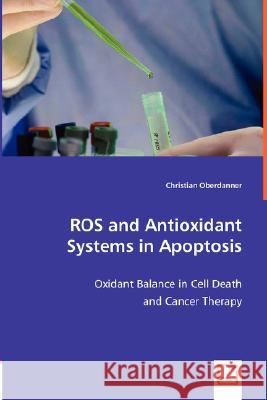ROS and Antioxidant Systems in Apoptosis » książka
ROS and Antioxidant Systems in Apoptosis
ISBN-13: 9783836482110 / Angielski / Miękka / 2008 / 132 str.
Increased intracellular levels of reactive oxygen species (ROS) may result in tissue damage and are therefore associated with various diseases, especially with cancer. Apart from their potentially harmful functions, ROS have been identified as important mediators of essential cellular processes like apoptosis. Antioxidants are the cellular antagonists of ROS and act to neutralize the cytotoxic impact of oxyradicals. In healthy individuals, antioxidant systems serve to maintain intracellular ROS levels below a certain threshold, permitting the functionality of essential ROS-mediated signaling processes but preventing ROS overproduction and potential tissue damage. Even small shifts of the ROS-antioxidant balance may entail serious biological consequences. In the context of ROS-based anti-cancer applications inducing apoptosis, the action of antioxidants may critically influence the outcome of the therapy. Decreased antioxidant capacity that is induced purposefully as a therapeutic strategy may result in an improved anti-cancer action, whereas the external addition of antioxidants may reduce the cytotoxic potential of the therapy.











